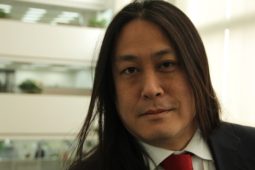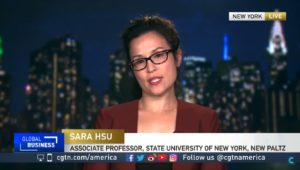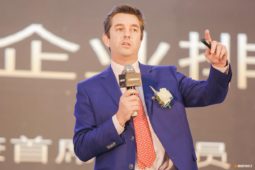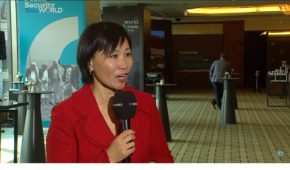 |
| Kaiser Kuo |
Daily Wealth:
Steve: When I tell Americans that China is ahead of us in technology use, they don't want to hear it.
Kaiser: I think when we're talking about innovation in China and in the United States, it's important to understand the cultural and social matrix in which these take place...
You look at China, China has seen technology develop very much in lockstep with its really rapid growth. There's a kind of faith in the ability of technology to deliver better lives. Compare that to the United States right now, where there's a lot of anxiety about technology...
If you look at some of our leading technologists, people like Bill Gates or like Elon Musk, they're out in public warning about the perils of – Elon Musk called it "summoning the demon" of artificial intelligence – that there are going to be armies of killer robots and we better really start worrying about that now.
That conversation is barely happening in China...
There are concerns raised about the jobs that might be lost to advanced robotics and things like that. But by and large, there is this faith that this will deliver better lives. It's a really big contrast.
Steve: In my travels to China, I can't believe the changes I've seen in the last five to 10 years. What would you say is the biggest change you've seen?
Kaiser: I have to say the biggest changes weren't at all in the last 10 years...Really, I think it was the decade of the '80s where the light in people's eyes changed.
Look, I think one thing Americans need to keep in mind when they look at China is: all this change that they've witnessed has happened in the space of one biological generation. You can do a lot in terms of "hardware" change in a biological generation – all the magnificent forests of steel and glass [the skyscrapers] that we see now.
But the more important change that has to take place is in the "software." That is really in the psychology of people, the mentality of people. That changes more slowly, but those changes are ultimately much more important.
And where I saw the biggest sort of transformation in that was in that decade of the '80s, where there was almost insatiable curiosity about the outside world just because it had just opened up.
People were on fire and they didn't stop trying to drink deeply of all this suddenly available knowledge that was around.More of the interview at the Daily Wealth.
Kaiser Kuo is a speaker at the China Speakers Bureau. Do you need him at your meeting or conference? Do get in touch or fill in our speakers' request form.
Are you looking for more experts on innovation at the China Speakers Bureau? Do check out this list.

















